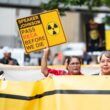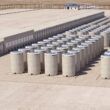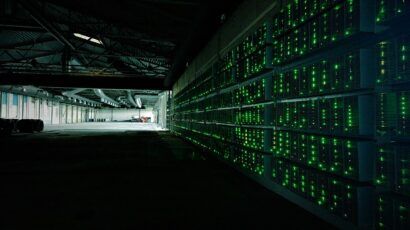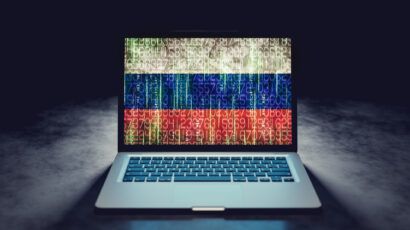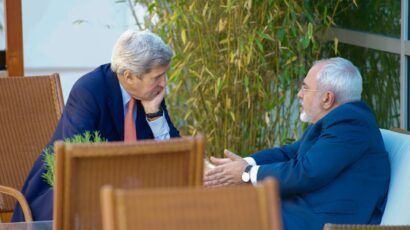Good reasons to worry
By Pervez Hoodbhoy, March 5, 2014
After the accident at the Fukushima Daiichi Nuclear Power Station, many observers expected that countries seeking to establish nuclear power sectors, or expand existing ones, would ask this question above all: How safe is nuclear energy? Instead, many developing countries still claim that nuclear energy is a solution to their energy woes and have dismissed Fukushima as a freakish, tsunami-induced disaster. Several developing nations—including Pakistan, India, Bangladesh, and Iran—are forging ahead toward the installation of new reactors.
Pakistan, my own country, suffers from severe energy stresses. Blackouts occur daily. Electricity riots have left the government feeling shaken. So Islamabad, buoyed by a $6.5 billion soft loan from China, has just inked a contract to purchase two 1,100-megawatt reactors from the China National Nuclear Corporation for $4.8 billion apiece. The two reactors are slated to operate in close proximity to Karachi, a city whose estimated population is 23.5 million.
The type of reactor that Pakistan will purchase, the ACP-1000, is a new design that has never been installed before or even tested, but the Pakistan Atomic Energy Commission is confident that Karachi faces no danger. Although the Pakistani government places deep faith in Chinese nuclear technology, some Chinese are not so sanguine. A former vice president of the China National Nuclear Corporation was recently quoted as saying, "Our state leaders have put a high priority on [nuclear safety] but companies executing projects do not seem to have the same level of understanding."
Untested reactor designs are by no means the only reason to worry about reactor safety in Pakistan. Another concern is a terrorist attack against a reactor—which, even if officials discount the possibility, is a distinct worry. Religious terrorists have carried out successful attacks on many of Pakistan's highly-guarded military institutions, including the general headquarters of the army, the Mehran naval base, and the Kamra air force base. There is no reason to believe that nuclear reactors would be invulnerable to attack.
Another worrying possibility, though it is also dismissed by officials, is operator error. At a nuclear power plant, there is simply no way for people outside the plant to know about bad practices within it. Indeed, the Chernobyl disaster was the result of imprudent actions on the part of reactor operators, and it underscored the vulnerability of nuclear power plants to poor judgment. These problems could be exacerbated at a Chinese-designed, Pakistani-operated reactor because operators would lack the intimate knowledge of design and software issues that they might have at an indigenous reactor.
Another issue of concern is the prevalence of industrial accidents in Pakistan. Though the country has suffered no single incident on the scale of the 1984 gas leak at Union Carbide's facility in Bhopal, India, industrial accidents occur frequently—partly because individuals who ignore safety standards are rarely punished. Disaster response capabilities such as firefighting are very limited and mobility is hampered by frequently clogged roads.
Even taking all this into consideration, the probability of a serious accident is still low. But what if such an accident were to occur? How well would the machinery of the state respond? On this count, there is ample reason to worry.
The government's response to past disasters has often been poor. Amid the country's 2010 floods, which left one-fifth of Pakistan inundated, the president and prime minister displayed a notable lack of urgency. The National Disaster Management Authority performed sluggishly. Populations downstream from the floods were not given the warnings they needed. Pakistan's ubiquitous armed jihadist groups substituted for the state in many places, just as they had done following the country's 2005 earthquake.
All this bodes ill for Pakistan if a serious accident at a nuclear reactor near Karachi forces an evacuation—which would be extremely chaotic and very different from Japan's disciplined evacuation of the Fukushima area. Pakistan suffers from sharp divisions between haves and have-nots, so widespread looting would be probable. Many people would therefore refuse to evacuate, preferring to wait out the danger. Emergency and law enforcement personnel, who are often poorly trained and demonstrate low motivation, might simply disappear from the scene. Pakistan also suffers from deep ethnic and religious tensions, and it is likely that members of minority groups would receive less help than others during an evacuation (as was true during the floods)—if in fact they received any help at all.
The Pakistani public's awareness of radiation hazards is nearly non-existent. Television stations freely propagate unsubstantiated rumors when reporting on both political and technical matters, so ill-informed views might become widespread during a nuclear disaster, resulting in either complacency or panic. To top things off, low consciousness of safety issues is simply an element of Pakistani culture. Pakistanis often accept high levels of risk and are satisfied to place their faith in God as their protector. Evacuation of Karachi amid a nuclear disaster is a terrible prospect to imagine.
Opaque and surreptitious. To argue against nuclear power in Pakistan is not to deny the severity of the country's electricity challenges, which are entrenched and multifaceted. To begin with, though Pakistan's installed electric capacity of 20 gigawatts is adequate in principle to meet daily average power demand of around 17 gigawatts, a mere 14.3 gigawatts, on average, are actually generated. That is, because of a financial management problem known as circular debt, about 30 percent of existing capacity is not used. Worse, Pakistan's distribution system is both leaky and subject to widespread theft, and these problems can eat up a staggering 25 to 30 percent of total production.
Even if it can address these problems, Pakistan will need to rely on a broad range of energy sources to meet its future needs, ranging from fossil fuels to renewable sources such as hydropower, solar, and wind—but at present, installed wind power amounts to only 50 megawatts, less than one one-thousandth of the estimated potential of the country's "wind corridors." Nuclear energy is no quick fix for these challenges, but the government behaves as if it is one.
Pakistani citizens have had little or no input on nuclear issues such as plant location and safety and the disposition of nuclear waste. This is partly because, in a country where the headlines every day concern terrorism and various other crises, citizens have little time or leisure to formulate and articulate positions on nuclear issues. But it is also because all of Pakistan's nuclear projects, whether civilian or military, are highly opaque. The authorities, pleading national security, strictly control all nuclear regulatory mechanisms and allow little scope for citizen involvement. Individuals not affiliated with the Pakistan Atomic Energy Commission or the Pakistan Nuclear Regulatory Authority are forbidden from monitoring radiation levels near any nuclear facility. People who raise questions about the safety of nuclear power plants are sometimes labeled agents of foreign powers. And when officials sought approval last year for a required environmental impact assessment report for the envisaged Karachi Nuclear Power Plants, they did so surreptitiously, without a public hearing.
No publicly available government study shows that nuclear reactors are the best or lowest-cost option to solve Pakistan's energy problems, and the case for nuclear energy is far from persuasive. But with billions of dollars at stake, commercial interests are working actively to promote these reactor sales. Concerns about Karachi's safety are being put on the back burner. One fears the consequences.
Topics: Nuclear Energy
Share: [addthis tool="addthis_inline_share_toolbox"]

